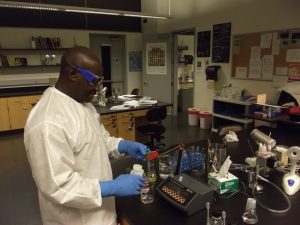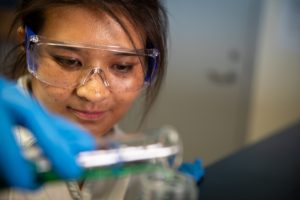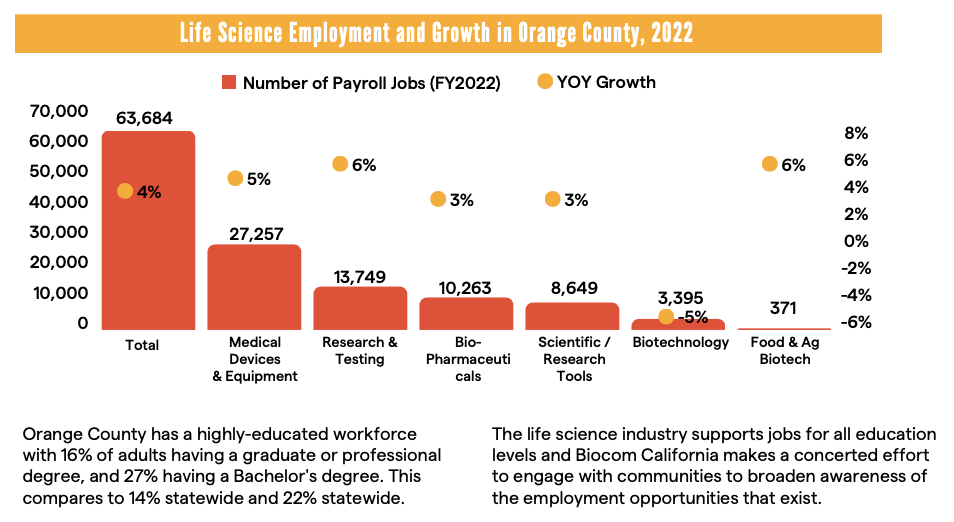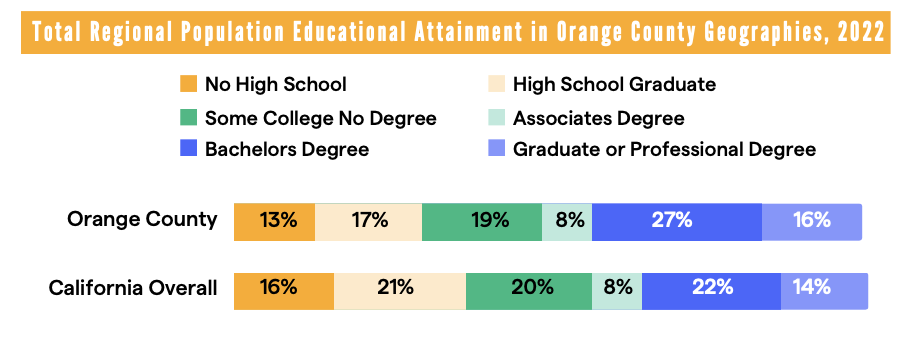Exploring Biotechnology:
Understanding The Significance and Benefits
Welcome to our comprehensive guide to biotechnology – a field that has revolutionized industries, transformed healthcare, and shaped the future of scientific discovery. In this page, we’ll dive into what biotechnology is, why it holds immense importance, and the compelling reasons why studying biotechnology is a pathway to a dynamic and impactful career.

What is BioTech?
Biotechnology is the application of biological knowledge and techniques to create innovative products, processes, and solutions that address a wide range of challenges. It encompasses a broad spectrum of scientific disciplines, including biology, chemistry, genetics, engineering, and more. Biotechnology harnesses the power of living organisms and biological systems to develop technologies that benefit society, advance medicine, improve agriculture, and protect the environment.
Through our biotechnology certificate program, OC BioTech Education equips students with the skills and knowledge essential for securing internships and entry-level positions within biotech companies and university research laboratories.
The SIGNIFICANCE of Biotechnology:
Save the Environment, Cure Diseases, and Feed the Population
In the pursuit of saving our environment, curing diseases, and ensuring global food security, biotechnology stands as the pivotal industry that will guide us towards these transformative goals. The innovative solutions and scientific advancements driven by biotechnology are essential for overcoming the challenges that lie ahead. By studying biotechnology, you’re not only immersing yourself in an exciting and dynamic field but also contributing to a brighter, more sustainable future for all.

Advancing Medicine and Healthcare
Biotechnology has transformed healthcare by enabling the development of life-saving drugs, diagnostic tools, and therapies. From revolutionary treatments for diseases to personalized medicine tailored to an individual’s genetic makeup, biotechnology plays a pivotal role in improving patient outcomes and quality of life.

Addressing Global Challenges
As the world faces pressing challenges such as food security, environmental sustainability, and renewable energy, biotechnology offers innovative solutions. Genetic engineering of crops for increased yield and resistance, biofuels derived from organic sources, and bioremediation to clean polluted environments are just a few examples of biotech’s positive impact.

Fueling Scientific Discovery
Biotechnology contributes to our understanding of fundamental biological processes and opens doors to new realms of scientific knowledge. Techniques such as DNA sequencing, gene editing, and tissue engineering have propelled research in various fields, including genetics, microbiology, and molecular biology.

Boosting Economic Growth
Biotech companies drive economic growth by creating jobs, fostering innovation, and attracting investments. The industry’s multidisciplinary nature creates opportunities for scientists, engineers, business professionals, and more to collaborate on groundbreaking projects.
Enhancing Agricultural Practices
Through biotechnology, crops can be genetically modified to withstand pests, diseases, and adverse environmental conditions. This translates to increased agricultural productivity, reduced pesticide usage, and improved food security for a growing global population.
Why Study Biotechnology?
Biotechnology is an exciting, multidisciplinary field with far-reaching implications. Studying biotechnology not only equips you with cutting-edge skills but also empowers you to be a catalyst for positive change in a rapidly evolving world. Join us in exploring the limitless potential of biotechnology – a journey that promises to be intellectually stimulating, personally rewarding, and socially impactful. Advancing biotechnology offers a gateway to a world of possibilities:
Cutting-Edge Careers
A degree in biotechnology opens doors to diverse career paths, including pharmaceuticals, medical research, agricultural biotech, bioinformatics, and more. Your expertise will be in high demand across industries.
Global Impact
Be at the forefront of solving some of the world’s most pressing challenges, contributing to advancements that benefit society, health, and the environment.
Scientific Exploration
Delve into the fascinating world of molecular biology, genetics, and bioengineering, unraveling the mysteries of life and gaining skills that drive scientific discovery.
CAREERS IN BIOTECH
PROTECT THE PLANET
- Clean Drinking Water
- Food Science
- Agricultural Science
- Environmental Science
- Endangered Species
- BioFuels
- Waste Management
SAVE LIVES
- Medical Research
- Clinical Lab Science
- Drug Development & Pharmaceuticals
- Vaccines & Biologics Development
- Fertility
- Forensics
- Genetics
- Clinical Trial Research
- Biomedical Instrument Sales
& MAKE $$$
- Bioinformatics
- Sales
- Biomanufacturing
- Materials
- Cosmetics
- Biological Anthropology
…and so much more!
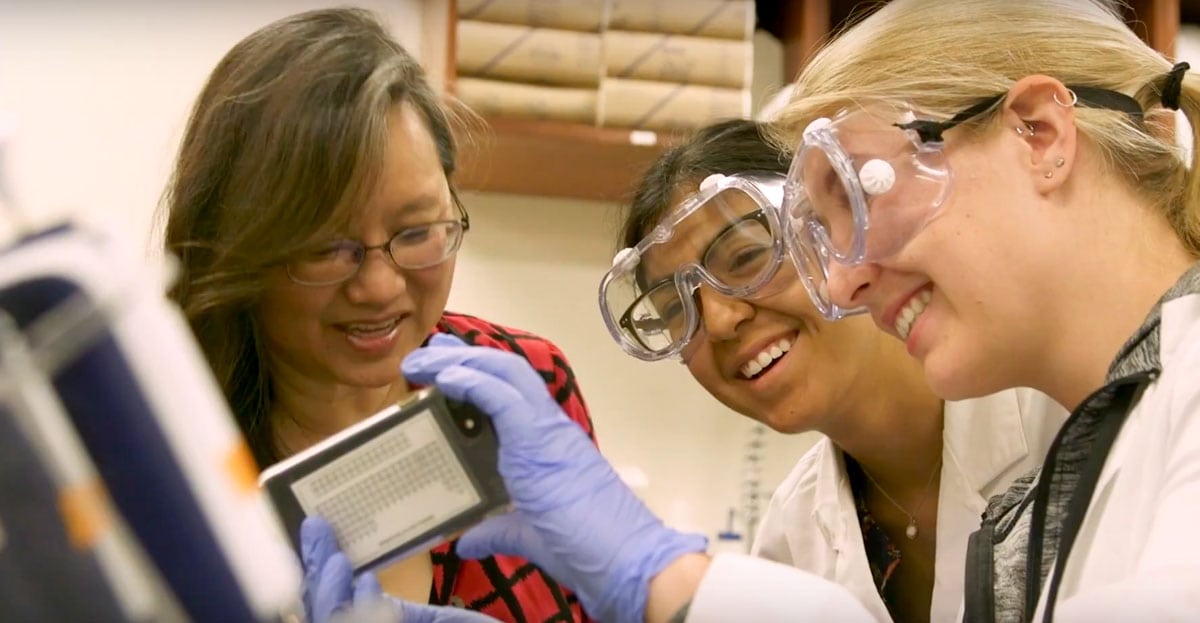
Why Learn Biology Lab Skills at a Community College?
- Affordable tuition ($46/unit)
- Personal attention in small classes
- Use of research-grade equipment
- Industry-trained faculty
- Develop career readiness skill
biotech lab skills
Students who complete the program have participated in hands-on training that includes at least 4 semester units (~200 hours) of:

General Laboratory Techniques
Microscopy, spectrophotometry, chromatography, electrophoresis, filtration, centrifugation, spectrophotometry, pH measurements, micropipetting, serological pipetting, electronic balance, aseptic technique, inventory management, safety, GLP/GMP, regulations and proper documentation
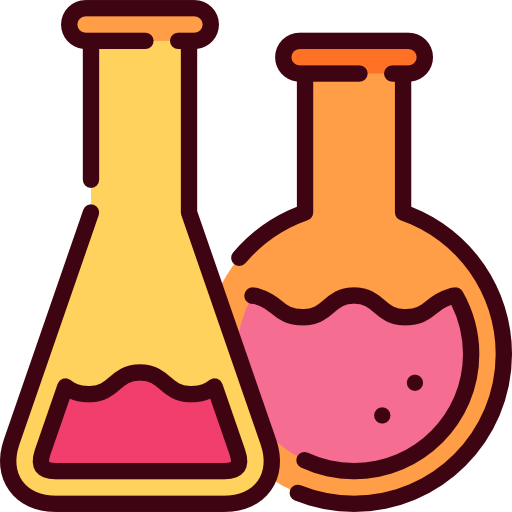
Solution and Media Preparation
Calculation and preparation of percent and molar solutions, dilutions (including serial dilutions), sterilization (filtration, autoclave, etc.).

Protein Chemistry
Upstream and downstream processes including expression, lysis, purifications, quantification, and characterization of proteins by techniques such as spectrophotometers, electrophoresis, chromatography and ELISA.
Nucleic Acid Chemistry
DNA Isolation and characterization, subcloning, restriction mapping, sequence analysis, PCR and primer design.

Quality & Regulations
Familiarity with quailty and regulatory concepts, such as: cGMP, GLP, 21CFR, CQIA Certification, FDA regulations, QC/QA, regulatory affairs, statistical process control and QMS.

Professional Skills
Problem-solving, effective communication, collaborative teamwork, ethical considerations, time management, attention to detail, adaptability to new technologies and methods, critical thinking, and a grasp of current industry trends
Biotechnology’s Economic Impact in Orange County
Biocom California’s 2023 Economic Impact Report shows that in Orange County alone, nearly 64K people were employed in the life science sector with an average wage of $108K. 57% of these jobs required an Associate’s Degree or less. Check out the graphics below or view the full report on the Biocom website.
Source: Biocom, California (2023). “Biocom California’s 2023 Life Science Economic Impact Report.” https://www.biocom.org/news/eir/#orange-county

